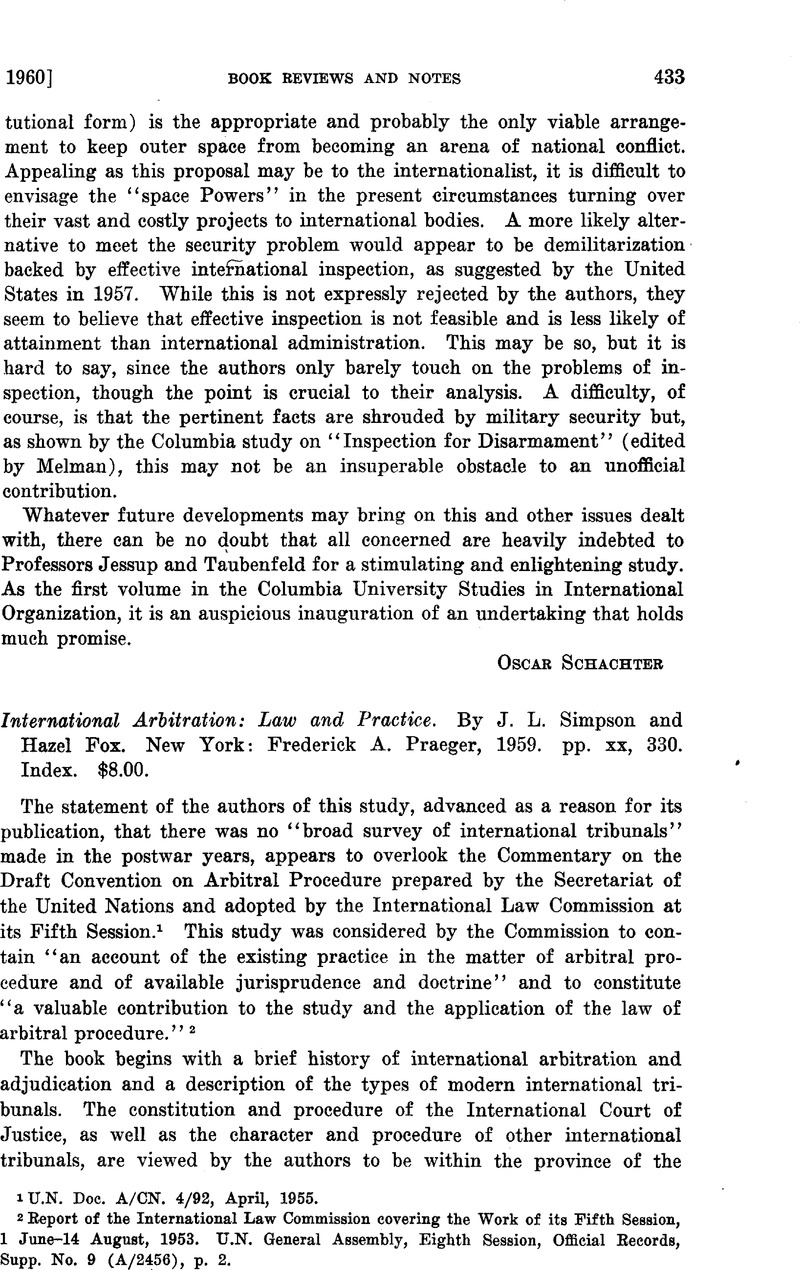No CrossRef data available.
Article contents
International Arbitration: Law and Practice. By J. L. Simpson and Hazel Fox. New York: Frederick A. Praeger, 1959. pp. xx, 330. Index. $8.00.
Published online by Cambridge University Press: 28 March 2017
Abstract

- Type
- Book Reviews and Notes
- Information
- Copyright
- Copyright © American Society of International Law 1960
References
1 The Extradition Law of Dec. 23, 1929 (EGB1. I, 239), provides: ‘’ Section 2 (1) Extradition is permissible only for an act which is a major or a minor crime under German law. “Section 3 (1) Extradition is not permissible if the act for which extradition is requested is a political act or is connected with a political act in such manner that it was designed to prepare, secure, cover up or repel such political act. “ (2) Political acts are punishable attacks which are immediately directed against the existence or security of the state, against the head of the state or a member of the government of the state as such, against a constitutional body, against civic rights in elections or plebiscites, or against friendly relations with foreign countries. “(3) Extradition is permissible if the act constitutes a deliberate crime against life, except where it was done in open battle.“
2 Art. 1 A (2) of the Geneva Convention defines “refugee” as a person who, “ as a result of events occurring before January 1, 1951 and owing to well-founded fear of being persecuted for reasons of race, religion, nationality, membership of a particular social group or political opinion, is outside the country of his nationality and is unable or owing to such fear is unwilling to avail himself of the protection of that country; or who, not having a nationality and being outside the country of his former habitual residence as a result of such events, is unable or, owing to such fear, unwilling to return to it .“
1 The law defines a stateless alien as an alien or stateless person who shows that he is under the jurisdiction of the I.R.O. and who resided in the territory of the Federal Republic on June 30, 1950, or that he had his ordinary residence in Germany after July 1, 1948, then moved outside Germany, but re-established his permanent residence in Germany within two years after this departure (Sees. 1 and 2, par. 3). Sec. 23 of the law provides: “ (1) Stateless aliens may not be expelled except for reasons of public safety and order. An alien against whom an expulsion order is issued is entitled to recourse to the courts. When a suit is brought, the execution of the expulsion order shall be suspended until final decision has been rendered. “ (2) The expulsion order shall grant the alien an adequate period of time during which he can seek admission to another country. “ (3) A stateless alien may not be extradited nor expelled, deported or returned to a state in which his life or his liberty is endangered by reason of his race, his descent, his origin, his faith, his religious or political convictions. “ (4) The applicability of Law No. 10 of the Allied High Commission of October 27, 1949, concerning the expulsion of undesirable persons is not affected by this Law.“




